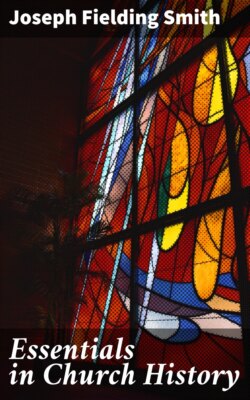Читать книгу Essentials in Church History - Joseph Fielding Smith - Страница 37
На сайте Литреса книга снята с продажи.
Temporal Power of the Pope
ОглавлениеTable of Contents
Rome became the capital of this ecclesiastical power and the bishop or pope, as he was called, its head. As its power grew it claimed dominion not only in matter religious, but in civil affairs as well. During the acme of its glory it ruled practically the known world. By it kings were made and by it they were dethroned. Unless they bowed before the papal power in abject submission they were made to feel the weight of its mighty hand.
Frederick Seebohm, in his Era of the Protestant Revolution, says: “Kings were not secure on their thrones till they had the sanction of the Church. On the other hand the clergy claimed to be free from prosecution under the criminal laws of the land they lived in. They struggled to keep their own ecclesiastical laws and their own ecclesiastical courts, receiving authority direct from Rome, and with final appeal, not to the crown, but to the pope.”
“To establish an accusation against a bishop,” writes Motley, in his Rise of the Dutch Republic, “seventy-two witnesses were necessary; against a deacon, twenty-seven; against an inferior dignitary, seven; while two were sufficient to convict a layman.”
